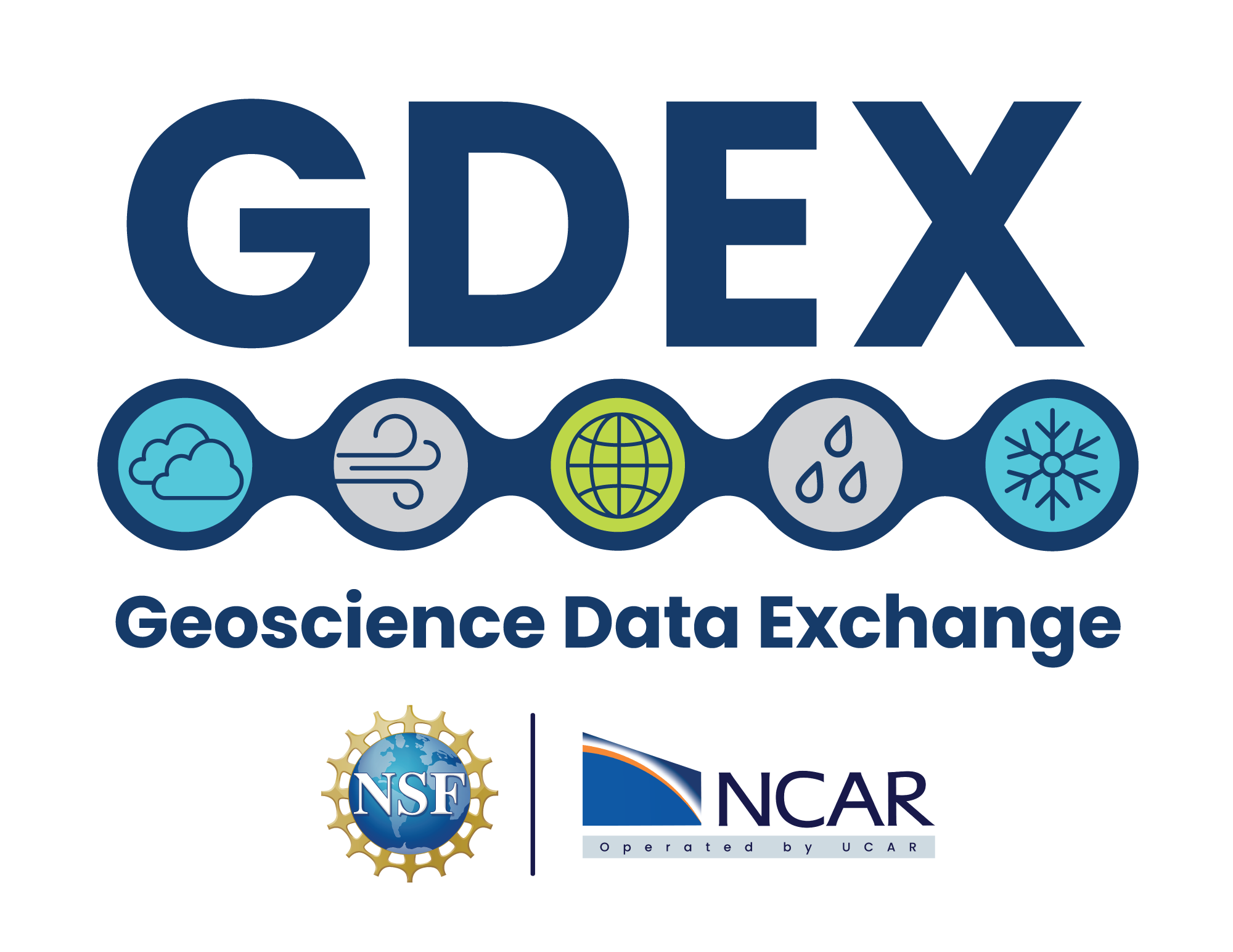
Overview¶
NSF NCAR’s Geoscience Data Exchange (GDEX) is a large, publicly accessible collection of atmospheric, oceanic, and related geophysical data managed at the National Center for Atmposheric Research (NCAR) sponsored by the National Science Foundation (NSF).
Currently the Geoscience Data Exchange can be visited using the link https://
In this tutorial you will learn:¶
Purpose of GDEX
Types of data
Features and tools
Access and connection to OSDF
Purpose of GDEX¶
GDEX provides free access to curated data for research, with an emphasis on datasets which provide high value to NCAR and member university researchers. Additionally, GDEX provides value added services and tools to help scientists discover, access, and manipulate data. There is also an increasing empahsis on enabling users to stream data to their local computational environment or apply computations directly to data.
Types of Data¶
The GDEX data has a wide variety of datasets that cover many different domains of geosciences including:
Global and regional reanalysis datasets (e.g., ERA5, NCEP/NCAR, JRA-3Q)
Numerical weather prediction model output (e.g. GFS)
Observational data (e.g., surface, radiosonde, satellite)
Climate model simulations (e.g., CESM)
Oceanographic datasets (e.g. ICOADS)
File Formats¶
Features and Tools¶
Search and filtering tools for finding datasets
Data subsetting and format conversion
Documentation and metadata for reproducibility
APIs and scripts for automated access
Access and OSDF¶
All datasets are open and free to download, however registration (via ORCID) is required for subset requests.
If you made it this far, you might wonder what the GDEX has to do with the Open Science Data Federation (OSDF)?
A: GDEX is a member of the OSDF and its data holdings are served via an origin. The implications are that subsequent requests of the same data will result in lower latency as data will be stored at a geographically close cache.
Summary¶
In essence, NSF NCAR’s GDEX is a vital resource for the climate and weather research community, providing long-term, reliable access to high-quality Earth system data.
Resources and references¶
Contact datahelp@ucar.edu if you want to learn more about GDEX.